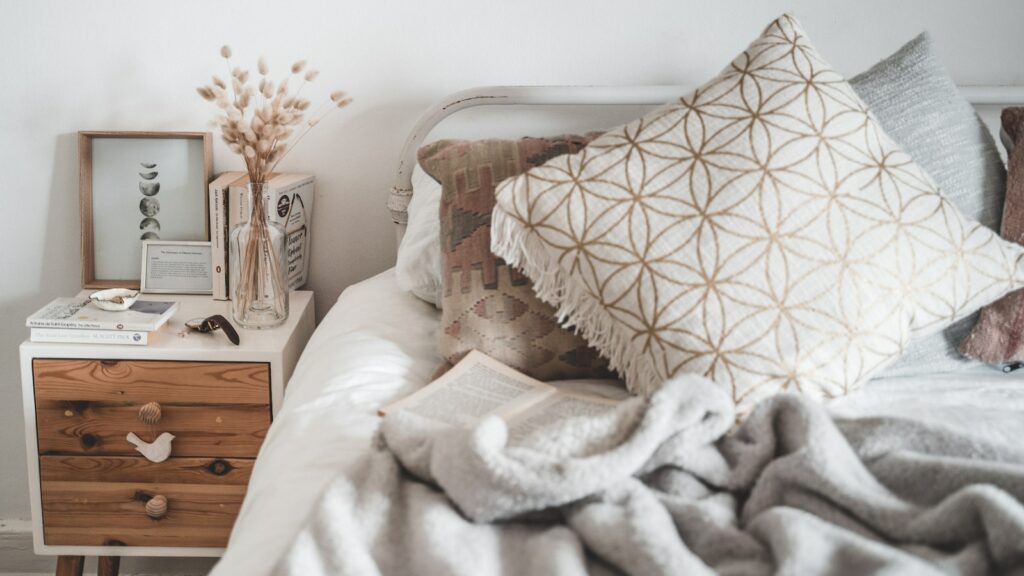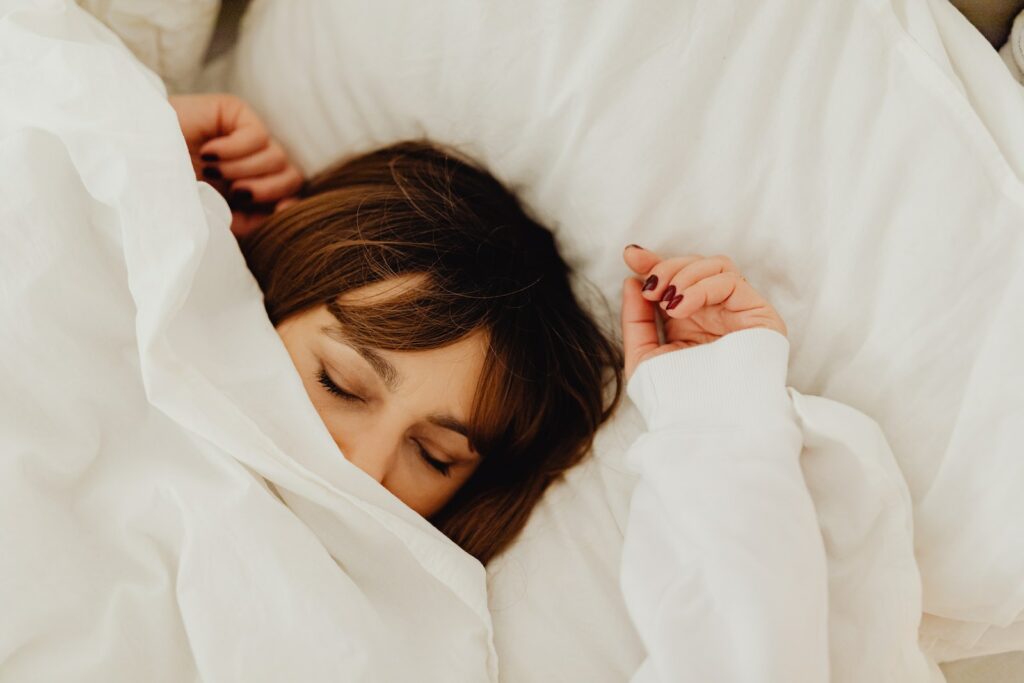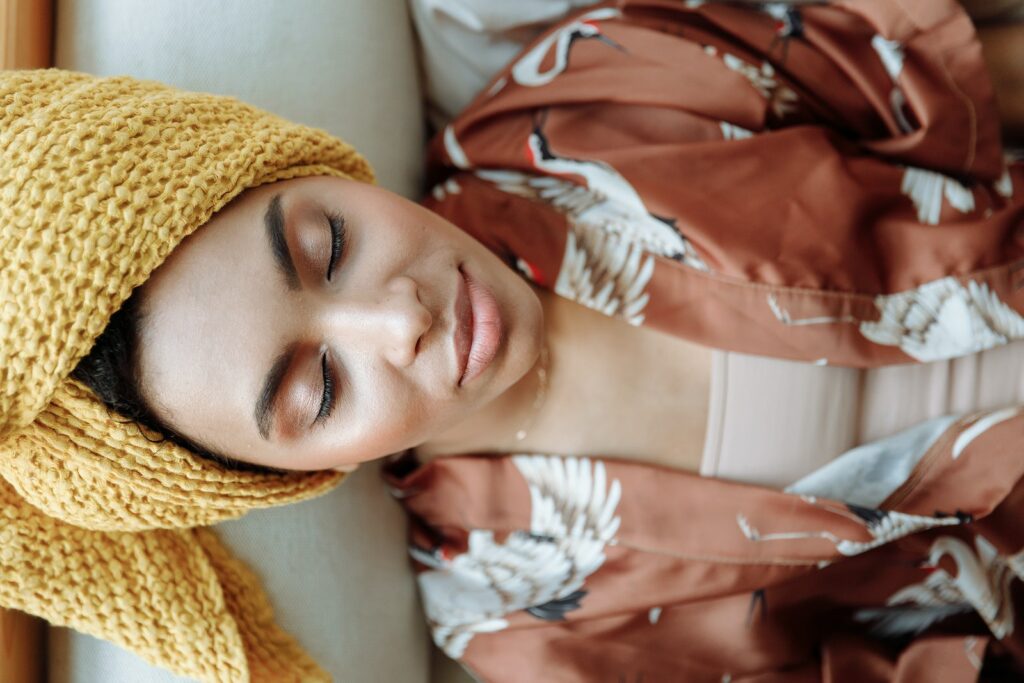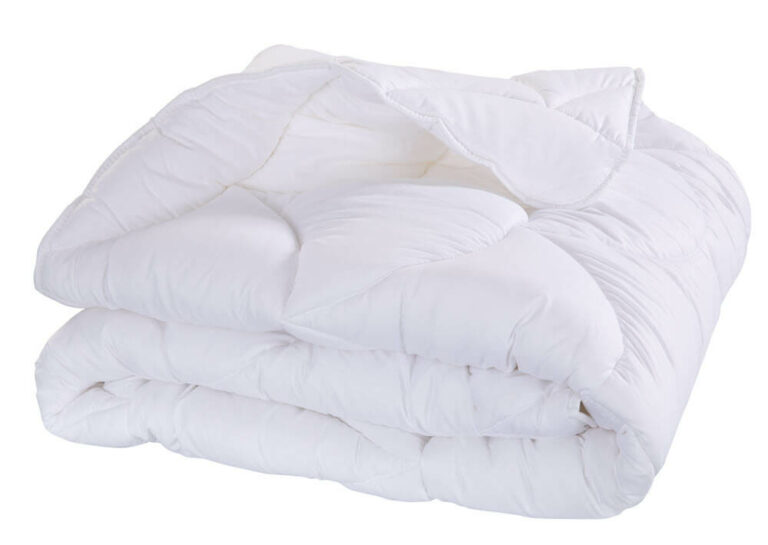In this fast-paced age, everyone’s looking for ways to get better sleep, and what position you sleep in every night is definitely a part of the puzzle. I bet you’ve wondered countless times: what is the best sleep position for you? How can you get the best-quality sleep?
And while, yes, the quality of your sleep is partially determined by sleeping positions, the truth is that there’s really no wrong or right way to sleep. It all depends on your body type, whether you’re pregnant or not, and whether you have certain medical issues. This means that if a particular sleep position works for one person, it doesn’t mean that it’ll work for another.

Of course, that doesn’t mean that you should sleep in exactly the same position every night, as that may lead to aches, stiffness, and discomfort in your body once you wake up. For example, if you’re a sworn side sleeper, regardless of whether it’s the left or right side, and you do this literally every night, you risk developing a shoulder injury and shoulder pain. The same goes for any other sleep position. If you sleep on your stomach night after night after night, it’s likely that you’ll wake up with neck and back pain.
How To Stay Sleeping On Your Back
Say you’ve experimented with sleeping positions and realized that sleeping on your back is the most comfortable position for you. Or maybe you want to make a little change in the way you sleep, and try a new position – this time, sleeping on your back.

Only, in trying you realize that you always end up in the same old sleep position every night. So what can you do?
No worries! There are ways to make yourself sleep on your back all night. We’ll show you the best tips and tricks for back sleeping that you can try tonight.
Spread Your Joints
Lying on your back and spreading your arms and joints before you fall asleep will help you get comfortable with the sleeping position – you know, like a starfish position.
Of course, you don’t have to do this the whole night, but it’s a good way to start the night because it also means you’re distributing your body’s weight more evenly on the mattress.

You’d be putting less pressure on your muscles and joints, and consequently, it would be easier for your body to stay in that position throughout the entire night.
Invest in a Good Mattress
That’s right – no matter your preferred sleeping position, nothing can replace a good-quality mattress, preferably a firm one or an orthopedic mattress. Sure, it takes some getting used to, but a firmer mattress can be a lifesaver, and it’s especially convenient if you are a back or a stomach sleeper.
A good, firm mattress will provide you good support and make it easier for your body to lay flat the whole night.

Have you ever slept on a soft mattress? Have you noticed how your belly or your butt (depending on the sleeping position), as well as your legs, keep sinking in? And did you wake up stiff and achy afterward? You probably did, even if you might not remember right away.
Soft mattresses make it harder for the body to keep stable during the night and it will make it extra hard for your spine to stay aligned all night.
That being said, buying a mattress that is too hard isn’t the best option either, because it might put strain on your hips (especially if you’re a side sleeper) and also cause lower back pain. A good idea is to look for a memory foam mattress.
A well-made memory foam mattress will mold to the contour of your body. It will reduce pressure on the most affected body parts, and it will also keep your neck, spine, and hips in proper alignment by distributing the weight of your body evenly throughout the entire surface of the mattress.

Alternatively, you can also get a mattress topper (there are also ones with memory foam) if you don’t want to buy a whole mattress. There’s plenty of them you can choose from, with all kinds of firmness, making it all the easier to find the most suitable one for you.
Invest in the Right Kind of Pillow
A good mattress or a good mattress topper won’t save you alone – you need the right pillow. You can have the best mattress in the world, but if you don’t have the right pillow, then you won’t see much of a change for the better when it comes to a good night’s sleep.
And this is especially important if you want to join the club of back sleepers. A good pillow will keep your neck, back, and spine well-aligned and will make it easier for you to stay in that position all night.

So, how can you know which pillow is a good fit for you? Well, first of all, it shouldn’t elevate your head too much, but it also shouldn’t be too flat.
Sleeping on a pillow that makes your head over-elevated may cause strain in your spine and also neck pain.
The spine is curved, and it’s curved also in the area of the neck, which makes it hard to sleep on super-flat surfaces. That’s why a pillow that under-elevates your head is also not a good idea, especially for your spine. The best kind is the one that follows the natural curvature of the spine.
Of course, different people have different heights and overall physiognomies, so it’s best to thoroughly research your pillow options before you set out to buy one.
Put a Pillow Under Your Knees and/or Under Your Lower Back
If you want to stay safely tucked in your bed sleeping on your back the whole night, you might also want to try and put a pillow under your knees and/or under your lower back.

Oftentimes, we unconsciously roll over in our sleep when we find ourselves in an uncomfortable position, or if we want to reduce pressure on a certain body part. Well, if you make sure you’re not putting any pressure in the first place before you fall asleep, you’re making it way easier for your body to stay in one position the whole night.
This is another way you can reduce putting too much strain on your spine, allowing it to follow the natural curve of the back. Also, if you often wake up with stiff muscles and joints, putting pillows under your knees and back might just do the trick and save you some trouble in the morning.
Now, when you’re getting pillows for your lower back and your knees, you don’t need to get the same pillows as for your head. This is because the curvatures are different, and oftentimes you will need a flatter pillow or a small pillow for your knees and lower back, than the one you use for your head.
Whatever kind of pillow you buy, just make sure it follows your natural curves and is able to support them accordingly.
Surround Yourself With Some Extra Pillows (or Covers)
That’s right. Discipline your body by putting an obstacle around it so it will be literally prevented from turning if it tries to.

You can put pillows on both sides of your body, or if you don’t have extra pillows, you can put some covers.
If you sleep with a partner, then you can just use them as a boundary and make it easier for yourself.
What Are the Benefits of Sleeping on Your Back?
Earlier I said that there isn’t really such a thing as the best sleep position. The quality of sleep that you get from a particular sleep position largely depends on the needs of the body and the health condition you’re in.
That being said, one of the less recommended sleeping positions is definitely lying on your stomach. Stomach sleeping is notorious for causing neck pain. I mean imagine turning your neck every night to an almost 90-degree angle. You also risk lower back pain by putting additional pressure on your lower vertebrae.

Stomach sleeping is okay for people that have problems with snoring, but can’t really try side sleeping. However, if you see that you don’t have neck problems and your lower back is fine even though you often sleep on your stomach, then it’s okay to continue doing so.
Still, sleeping on your back can have a number of health benefits for your overall well-being. Let’s take a look at some of them here.
Sleeping on Your Back Can Help You With Acid Reflux
If you’re among the unlucky bunch that have ongoing issues with acid reflux, then sleeping on your back might just alleviate it or prevent it altogether, depending on the severity.
Pregnant women often have this issue. The important thing is for your head to be properly elevated, keeping your esophagus just above the stomach. Sleeping on your left side can also help alleviate symptoms of acid reflux or heartburn.
Back Sleeping for Healthy Spine
Back sleepers have an easier time keeping the spine properly aligned because – well, because of gravity.

Gravity keeps the spine in a neutral position when you sleep on your back, which also means less pressure precisely in the areas that often suffer most during sleep – your spine, your head, and your neck. A healthy spine makes it much harder to wake up in pain the next morning.
Of course, make sure you also have the right pillow and the right mattress, as I mentioned earlier, so you can keep the natural flow of your spine curvature and fully enjoy the health benefits of back sleeping.
Sleeping on Your Back Doesn’t Cause Sleep Wrinkles
Every time I sleep on my stomach I wake up like a crumpled newspaper the next morning. Imagine being late for work and having to enter your office with pillow marks all over your face!
These lines, of course, are temporary, but a lot of people just don’t want to wake up with them or have to wait for them to clear for 15 or 20 minutes.
There isn’t much evidence that side sleeping or stomach sleeping causes actual wrinkles, but if you’re extra scared of those, it’s best to be on the safe side and just avoid falling asleep in these positions.
No More Puffy Eyes!

This is my personal favorite. If you want to get rid of puffy eyes, drink lots of water, and of course – sleep on your back.
Back sleeping will prevent excess blood from draining into the area around and under your eyes during those (hopefully) long(er) hours of sleep.
As a result, you’ll wake up with eyes already fresh and won’t have to put cucumbers on them every morning.
Back Sleeping Is Good for Stuffy Sinuses
If you have chronic problems with your sinuses, allergies, or you simply have the flu and you’re battling congested sinuses and sinus pain, sleeping on your back can provide you with some relief.

Make sure your head is positioned above your heart – that way you can try to slow down the building of mucus in your sinuses, and also put less pressure on them by keeping too much blood flow from going into your nose.
Back Sleeping Is Good for Back and Neck Pain
Yes, as it turns out, sleeping on your back is good for the back as well. It would actually be pretty ironic if it were otherwise, right?
But yes, generally speaking, back sleeping is good if you want to alleviate pain in your lower back. Couple this with propping your knees up with pillows, or a well-chosen mattress for bad backs, and you’ve got yourself a recipe for releasing pressure from your spine and relieving any aches.
When your knees are raised, your back becomes straighter, and the strain on the lower back is reduced because the spine isn’t as curved anymore.
What Are the Downsides of Sleeping on Your Back?
There aren’t that many downsides to back sleeping.
The two most common ones are snoring and sleep apnea.

Now, this sleeping position doesn’t actually cause these conditions but may worsen their symptoms. If you’re struggling with obstructive sleep apnea and experience collapse of your airways during back sleeping, then it might be a good idea to switch to stomach sleeping or become a side sleeper.
Of course, you may also need a CPAP machine, but consult your doctor beforehand.
The same goes for snoring. When you sleep on your stomach or your side, you make it easier for your airways during sleep to remain open. You can even stop yourself from snoring, or at least make it milder, and alleviate some of the symptoms of mild sleep apnea.
FAQs
How long does it take to train yourself to sleep on your back?
Learning to sleep on your back can be a gradual process that takes some time and dedication. It may take weeks or even months, depending on how comfortable you become in this sleeping position. During this period, it is important to try different methods such as sleeping at the same time each night, using extra pillows and blankets, setting up good sleep habits, reducing stress levels, and investing in the right mattress for support. With enough effort and consistency, you should eventually be able to train yourself to sleep on your back comfortably.
What are the disadvantages of sleeping on your back?
Sleeping on your back can cause snoring and other issues related to sleep apnea, such as fatigue and reduced cognitive performance. In addition, this sleeping position increases the chances of acid reflux, since your stomach and esophagus are more likely to be in direct contact with gravity than if you were on your side. Lastly, sleeping on your back can cause neck stiffness and lower back pain; it is also uncomfortable for some people with joint conditions.
Is it better to sleep on your back or side?
Generally, it is better to sleep on your side than on your back. Lying on your side helps reduce snoring and can promote proper spinal alignment, both of which can improve sleep quality. Side-sleeping also helps reduce acid reflux and can open up airways in the chest and stomach, reducing congestion. It is recommended that pregnant people always sleep on their sides as it can help increase blood flow to the baby and prevent strain in the lower back.
How to sleep on your back without pain?
To sleep on your back without pain, make sure to find a comfortable position that supports your body. Finding the right supportive mattress and pillow are essential as they should be of adequate firmness to provide support while also being soft enough to avoid piling onto pressure points. Ideally, it is best to have an ample amount of space between the head, neck and shoulders to ensure proper alignment. Additionally, placing a pillow under your legs or a rolled-up towel can help relieve strain on the lower back. Lastly, check for any potential aches or pains and adjust accordingly until you find an optimal position for sleeping on your back.
Conclusion
Looking for a good night’s sleep? Make sure you’re equipped with a good mattress and a dreamy pillow, do a set of light stretching exercises half an hour before you hit the sack, and then head straight to your bed, face-up, lying on your back, slowly turning into a starfish. You’ll be in dreamland in no time.
Article Sources
- Bergholdt, K., Fabricius, R. N., & Bendix, T. (2008, April 1). Better backs by better beds?. Spine, 33(7):703–708. https://pubmed.ncbi.nlm.nih.gov/18379395/
- Lee, W. H., & Ko, M. S. (2017). Effect of sleep posture on neck muscle activity. Journal of physical therapy science, 29(6):1021-1024. https://www.ncbi.nlm.nih.gov/pmc/articles/PMC5468189/
- Leicht, L. (2021, February 17). What’s the Best Position to Sleep In? https://www.webmd.com/sleep-disorders/best-sleep-positions
- Taguchi, T. (2003). Low back pain in young and middle-aged people. Japan Medical Association Journal, 46(10):417-423. https://www.med.or.jp/english/pdf/2003_10/417_423.pdf
- Iftikhar, N. (2019, February 26). 10 Causes of Under-Eye Swelling. https://www.healthline.com/health/eye-health/10-causes-of-under-eye-swelling






